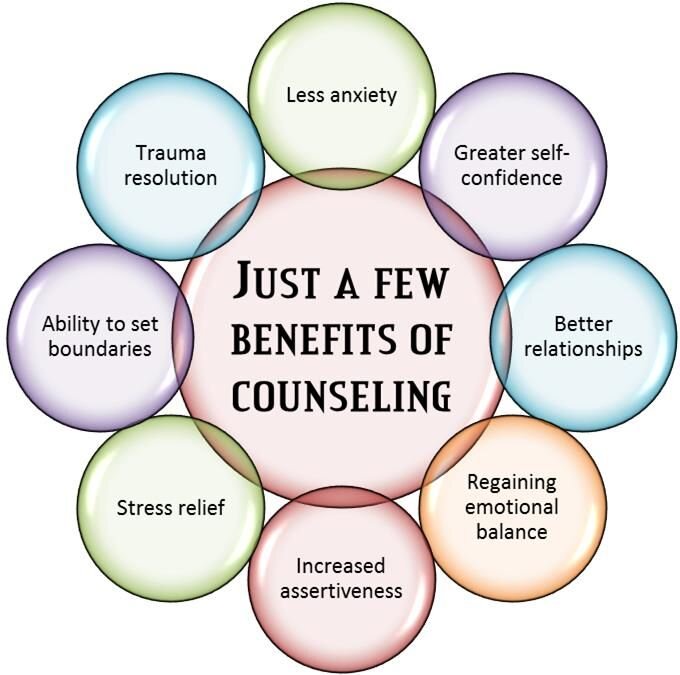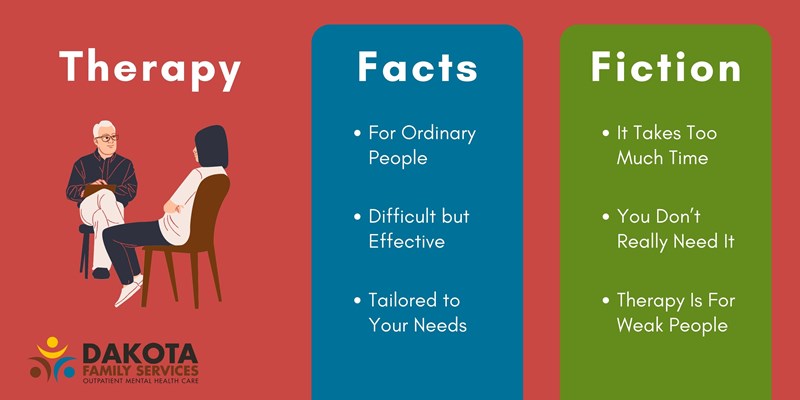Opening the Keys of Mental Health: A Review of Counseling and Therapy Choices
Mental wellness is a complicated and essential element of overall wellness. Countless therapy and therapy alternatives exist to resolve numerous emotional difficulties. Each approach provides special advantages and techniques tailored to individual requirements. Comprehending these alternatives is important for anyone looking for to enhance their mental wellness. Marriage Counselling. What factors should one think about when checking out these avenues? The solution might disclose a path to a healthier psychological state
Comprehending Mental Health And Wellness and Its Significance
Mental health encompasses the emotional, emotional, and social wellness of individuals, significantly affecting how they assume, really feel, and act. Its significance can not be overstated, as it influences every facet of life, including connections, work efficiency, and general lifestyle. Individuals with good psychological wellness tend to manage stress and anxiety better, preserve much healthier partnerships, and make notified choices. On the other hand, bad mental health and wellness can lead to psychological distress, damaged performance, and different mental problems, which may need specialist treatment. Understanding mental health and wellness is important for recognizing the signs of distress and the need for support. Recognition also advertises compassion and reduces preconception, urging people to seek aid when necessary. By focusing on psychological health and wellness, areas can foster environments that support psychological wellness, ultimately resulting in healthier, much more resilient individuals. This foundation offers as a crucial step toward effective mental health and wellness therapy and treatment alternatives.
Types of Counseling Methods
Therapy techniques differ extensively, each customized to satisfy the one-of-a-kind needs of people seeking assistance. Amongst the most typical kinds are cognitive-behavioral therapy (CBT), which concentrates on recognizing and transforming adverse thought patterns, and person-centered treatment, which highlights empathy and acceptance. Psychodynamic therapy discovers subconscious processes and previous experiences to recognize current habits, while solution-focused quick treatment aims to determine options instead of investigate problems.Additionally, household treatment addresses relational characteristics and interaction within family members, promoting healthier interactions. Group counseling supplies a common area for participants to share experiences and support one an additional. Various other methods consist of existential therapy, which motivates people to locate significance and objective, and art or songs therapy, which utilizes innovative expression as a therapeutic tool. Each approach provides unique strategies and ideologies, permitting clients to locate one of the most appropriate method for their individual growth and recovery journeys.
Discovering Various Therapy Modalities
In the domain name of mental wellness counseling, different therapy methods provide unique strategies to therapy. Cognitive Behavior modification stresses the link in between habits and thoughts, while Psychodynamic Treatment explores subconscious impacts on emotional health. Additionally, Mindfulness-Based Methods advertise present-moment awareness as a method to enhance psychological policy and overall mental wellness.
Cognitive Behavior Modification
Cognitive Behavior Modification (CBT) stands apart as one of the most widely practiced and researched methods in psychological health and wellness therapy. This technique concentrates on the interconnection in between sensations, habits, and ideas, emphasizing that altering unfavorable idea patterns can lead to enhanced psychological health and behavioral modifications. CBT is structured, typically entailing a minimal number of sessions, and aims to furnish people with functional abilities to handle their symptoms. It works for a range of conditions, consisting of anxiousness conditions, depression, and post-traumatic anxiety disorder. By utilizing strategies such as cognitive restructuring and direct exposure therapy, CBT fosters strength and encourages customers to challenge obstacles head-on, making it an important alternative in the landscape of psychological wellness therapies.
Psychodynamic Treatment Strategies
Psychodynamic therapy approaches use a deep exploration of the subconscious mind and its influence on behavior and psychological health. Rooted in Freudian theory, these methods highlight the value of very early childhood years experiences and unconscious disputes. Via methods such as complimentary organization, desire analysis, and transfer, individuals gain insight into their ideas and sensations, cultivating self-awareness and understanding. This therapeutic modality encourages customers to discover repressed feelings and unsolved concerns, which can be essential in dealing with present mental challenges. By taking a look at the interplay in between present behaviors and past experiences, psychodynamic therapy aims to promote emotional healing and individual development. Eventually, it offers a structure for individuals to explore complicated inner characteristics that influence their mental wellness.

Mindfulness-Based Strategies
While conventional therapies usually concentrate on previous experiences, mindfulness-based methods focus on present-moment recognition as a path to psychological well-being. These techniques, including mindfulness-based cognitive therapy (MBCT) and mindfulness-based anxiety reduction (MBSR), encourage people to engage fully with their thoughts and sensations without judgment. Specialists discover to observe their psychological states, promoting a better understanding of emotional triggers and reactions. This practice not just reduces signs and symptoms of anxiety and clinical depression however also enhances total psychological durability. By integrating mindfulness workouts, such as meditation and deep breathing, customers grow a sense of peace and quality. Inevitably, mindfulness-based techniques equip individuals to navigate life's challenges with raised awareness and approval, advertising a much healthier connection with their ideas and emotions.
The Function of a Therapist or Therapist
An experienced specialist or therapist plays a vital function in sustaining people via their psychological health and wellness trips. They provide a secure, non-judgmental area where clients can reveal their ideas and feelings openly. Cognitive Behavioural Therapy. By utilizing different healing methods tailored to each individual's needs, therapists aid clients explore underlying problems that might contribute to their mental wellness challenges.Therapists supply guidance and devices to cope with anxiety, anxiousness, depression, and various other emotional difficulties. Their training outfits them to recognize patterns in actions and assumed processes, assisting in insights that bring about individual development. They also foster a solid restorative partnership, which is crucial for effective outcomes.Moreover, therapists continue to be fully commited to confidentiality and moral criteria, guaranteeing a trusting atmosphere. Inevitably, the role of a specialist or therapist is to encourage people, urging them to develop strength and much healthier coping strategies while steering via life's intricacies
Exactly how to Choose the Right Counseling or Treatment Choice
Selecting the appropriate counseling or therapy alternative starts with reviewing specific demands. It is vital to understand individual obstacles and objectives prior to exploring numerous treatment styles. This foundational action can greatly affect the performance of the chosen strategy.
Assess Your Requirements
Exactly how can individuals successfully assess their psychological health and wellness requires when evaluating therapy or look at this site therapy options? First, they ought to show on their emotion and recognize specific concerns, such as anxiousness, clinical depression, or relationship challenges. Journaling can be a beneficial tool for tracking thoughts and feelings gradually. Additionally, individuals might gain from seeking responses from relied on friends or relative concerning regarded modifications in behavior or state of mind. It is likewise practical to evaluate individual goals for therapy, such as enhancing coping abilities or getting understanding right into individual patterns. Investigating numerous therapy methods and their viability for details needs can aid in making an informed option. Inevitably, self-awareness plays a pivotal function in choosing the ideal path for psychological health assistance.
Check Out Treatment Styles
While traversing the varied landscape of therapy options, individuals should take into consideration numerous designs of counseling to discover the most effective fit for their special requirements. Cognitive Behavior Modification (CBT) focuses on altering negative thought patterns, while Psychodynamic Therapy discovers subconscious processes and previous experiences. Humanistic strategies highlight individual development and self-actualization, promoting a supportive setting. Furthermore, mindfulness-based therapies cultivate present-moment understanding, aiding psychological guideline. For those seeking framework, Solution-Focused Brief Therapy targets details goals and services. Team therapy provides a communal setting for common experiences and support. Inevitably, individuals should review their preferences, comfort levels, and specific difficulties, guaranteeing they pick a restorative design that reverberates with their personal journey towards psychological well-being.
Getting Over Barriers to Seeking Help

The Benefits of Counseling and Therapy for Mental Health
Looking for assistance for mental wellness obstacles can lead to significant renovations in general wellness. Counseling and treatment supply individuals with a secure room to discover their ideas and feelings, fostering self-awareness and personal development. These professional services equip clients with coping techniques and analytical skills customized to their distinct situations.Moreover, therapy can lower symptoms of anxiety, clinical depression, and various other psychological wellness disorders, enhancing psychological strength. Normal sessions promote responsibility and encourage individuals to set and achieve personal goals. Through numerous healing techniques, such as cognitive-behavioral therapy or mindfulness techniques, customers discover to reframe negative ideas and create much healthier behaviors.Additionally, the restorative connection itself can be a source of assistance, assisting to fight isolation and isolation. On the whole, involving in therapy and therapy is a proactive action toward achieving psychological wellness, making it possible for people to lead more meeting lives.
Often Asked Concerns
Just How Long Does Therapy or Therapy Generally Last?
The duration of therapy or treatment differs significantly, usually lasting from a couple of sessions to numerous months or years. Elements influencing this include the person's particular demands, the kind of treatment, and restorative goals.
What Should I Anticipate During My Very First Session?
During the initial session, people can anticipate an introduction, conversation of issues, and the specialist's approach. They may finish evaluations and establish objectives, fostering a risk-free environment for open interaction and building connection.

Are There Any Threats Connected With Treatment?
Treatment can include risks, such as emotional pain, vulnerability, or confronting uncomfortable memories. While these this contact form difficulties may emerge, they can additionally result in individual growth and healing, making the therapeutic procedure facility yet possibly satisfying.
Just How Can I Inform if My Specialist Is an Excellent Fit?
Determining if a specialist is a great fit includes assessing convenience, communication design, and healing strategy. Positive connection and development towards goals are indicators of a suitable suit, essential for efficient mental wellness support.
Will My Insurance Cover Therapy or Therapy Procedure?
Determining insurance policy protection for counseling or treatment sessions usually calls for speaking to the insurance copyright directly. Plans differ significantly, so people must validate benefits, co-pays, and any necessary pre-approvals prior to seeking therapy solutions. Amongst the most typical kinds are cognitive-behavioral therapy (CBT), which focuses on identifying and transforming unfavorable idea patterns, and person-centered therapy, which highlights compassion and approval. Psychodynamic therapy discovers previous experiences and subconscious processes to comprehend present actions, while solution-focused quick therapy intends to identify options instead than examine problems.Additionally, family members therapy addresses relational characteristics and interaction within families, fostering healthier interactions. Other approaches consist of existential treatment, which motivates individuals to find meaning and purpose, and art or music treatment, which utilizes creative expression as a healing tool. Cognitive Behavioral Treatment stresses the connection in between behaviors and thoughts, while Psychodynamic Therapy explores unconscious influences on emotional wellness. Cognitive Behavioral Therapy (CBT) concentrates on changing unfavorable thought patterns, while Psychodynamic Therapy checks out previous experiences and subconscious procedures.